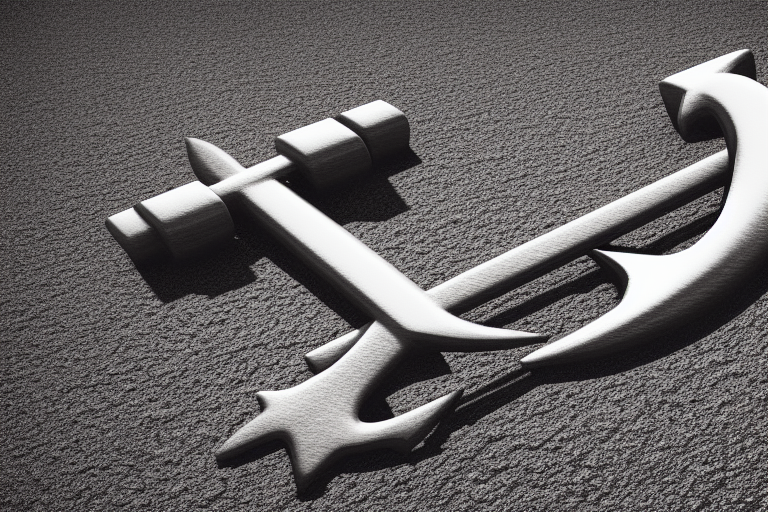Anchor text : from beginner to mastery

By now you should know that links are one of the most important ranking factors when it comes to SEO.
But what about your anchors?
What is an anchor text ?
First things first, what am I even talking about?
Anchor text refers to the clickable words used on a link.
For example, in this sentence, the anchor text would be "this sentence".
Why does it matter?
If you do it wrong, you will have a hard time ranking.
And with all the bullsh** theories going on in the SEO world, it is very easy to get a wrong view on anchor optimization and harm a website instead of growing its search traffic.
Types of anchor text
Let's say I am building a link to this page. I have many ways to do that and different text to use as an anchor.
Here are some examples of anchor type I could use for the keyword "anchor text":
Naked URL : the anchor text is the raw, "naked" URL as it appears in my browser bar
Take look at my anchor text guide (https://www.seowl.co/blog/anchor-text)
Branded : the anchor text is the name of the brand producing the content. Here it would be SEOwl so for example :
Take a look at SEOwl's guide on anchor text
Exact match : the anchor text is the exact keyword you would be targeting as an SEO ie. the keyword that best describe the page
Take a look at my anchor text guide
Phrase match : same as an exact match, except you add a few more words around, relevant or not
Take a look at SEOwl's anchor text guide.
Partial match : same as a phrase match, except your keyword may not be in the right order. thus for one-word keyword it's exactly the same as a phrase match
SEOwl wrote a text about anchors.
Generic : almost everything else, especially text not related to your content at all eg. "click here", "this article", "this page"
Click here to know more about anchor text !
How to do anchoring - and not harm your website
Anchor text ratio is one thing that most SEO beginners underestimate. If you screw that one up, however, it will be quite hard to get your site back from overoptimization.
It's especially true for people buying SEO and links.
They have learned about the keyword thing and how SEO is "optimizing for a keyword" so they will "optimize for their keyword" and put all their link with an anchor containing their keyword.
Surely if all your links are using your keyword as an anchor text, you will rank higher for that keyword, right?
... No
You will just get penalized. And don't expect a notification on your Google Search Console, those types of penalization are just in the rankings. You just won't see your keywords ranking.
And that's just common sense.
Let's just go to CNN and pick the first article: https://edition.cnn.com/style/article/kim-kardashian-skims-face-masks-intl-scli/index.html

Those are natural anchors :
- One brand anchor for "Skims"
- One long anchor to refer to another article about coronavirus
And guess what, Google does not need your anchor to "understand" that your page is about [your keyword].
And if it does need your anchor to understand that, well that means your content is garbage/not relevant and won't be ranking anyway.
It's better to avoid exact anchors completely. The benefit from them is really minimal compared with the dangers.
So how do you do it instead?
Do it like CNN. Do it with common sense. Do it exactly like you would do if you were not doing SEO at all. That may be one example of where a little knowledge can be more dangerous than no knowledge at all.
This is about doing what real websites do. Think less, not more.
Raw, exact anchor doesn't appear naturally that much. Therefore, you pop out like a statistical improbability. And that's what you don't want to do. You want to blend in so that the algorithm doesn't spot you as trying to game the system - which will get you penalized, just like keyword stuffing.
Add in generics, LSIs, brand names, naked urls, mentions (the url without a hyperlink), and even competitors' anchors.
It's best to forget about exact and partial match anchors completely until you have some decent backlink profile in place.
And after that only use them on pages when it makes sense and very cautiously.
A bit of history ...
Anchoring was at first used by Google to determine the topic of the content. And it worked great. But it could be easily manipulated, which led to massive abuses by SEO's.
Since 2012 and the "Penguin update", Google is now very aggressive against exact match anchors.

Thus what I recommend in this article + the fact that Google nowadays use other ways of determining the topic of a webpage.
Advanced SEO tip : your anchor ratio
If you're doing SEO for some time you may already know all of this.
BUT.
Do you know that anchor texts are something on a PAGE level and a site level?
You read that right.
Even though you have 90% brand anchors on your homepage doesn't mean you can get away with a 95% exact match ratio on one of your page !
That's one of the reasons many pages are getting stuck on 2nd/3rd/4th pages even though everything else is optimized and you threw some links at it.
You just over-optimized your anchors. Game over.
Using SEOwl to control your anchor ratio
Probably a shameless plug here, but even if you do not use SEOwl, you should be looking to get the same kind of stats in your SEO backlink software.
I'm talking about your anchor distribution and your anchor type distribution.

As we've seen before, you should make sure that your top anchors are branded, naked, or generic. I would even say most should be branded.
So here we see that we (as SEOwl) should focus on branded anchors for our next backlinks at that time.
TL; DR
- There's no real way to "optimize" your anchors; the goal here is to be natural
- Stay natural. Do your linking as if you were not doing any SEO at all. Otherwise, you will over-optimize and get penalized in your rankings
- Anchor text is a concept computed on a site level and on a page level. Don't do it well on your homepage and wrong on your inner pages or vice-versa.
